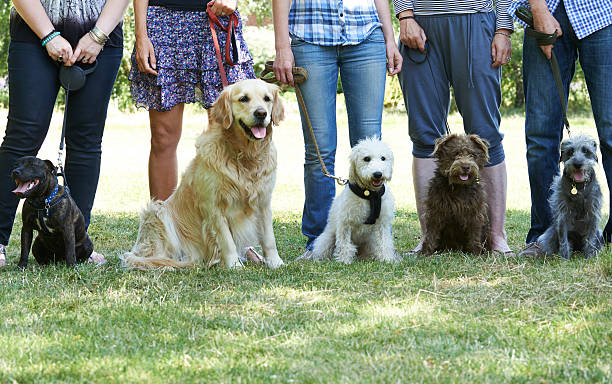Effects of Dog-Appeasing Pheromones on Anxiety and Fear in Puppies During Training and on Long-Term Socialization

Objective: To evaluate the effectiveness of dog-appeasing pheromone (DAP) in reducing fear and anxiety in puppies and its effects on training and socialization. Design: Randomized, controlled clinical trial. ANIMALS-45 puppies between 12 to 15 weeks of age at the time of inclusion. Procedures: Puppies enrolled in puppy classes were randomly allocated to 1 of 4 groups: 2 large-breed groups (1 DAP and 1 placebo group) and 2 small-breed groups (1 DAP and 1 placebo group). The investigator, trainers, and owners were unaware of treatment allocation throughout the study. Classes lasted 8 weeks, and owners were asked to complete a questionnaire before the first lesson and at the end of each lesson thereafter. Data collected included amount of learning and degrees of fear and anxiety for each puppy. Follow-up telephone surveys of owners to obtain information on subsequent socialization of puppies were performed at 1, 3, 6, and 12 months after the classes ended. Results: Dogs in DAP and placebo groups were significantly different with respect to degrees of fear and anxiety; longer and more positive interactions between puppies, including play, were evident in dogs in the DAP groups. Data from follow-up telephone surveys indicated that puppies in the DAP groups were better socialized and adapted faster in new situations and environments, compared with puppies in the placebo groups. Conclusions and clinical relevance: When compared with a placebo treatment, DAP was useful in reducing anxiety and fear in puppies during puppy classes and resulted in improved socialization.
Denenberg, S. and Landsberg, G.M. (2008). Effects of dog-appeasing pheromones on anxiety and fear in puppies during training and on long-term socialization. Journal of the American Veterinary Association, 233(12), 1874-1882.
Photo: iStock.com/Highwaystarz-Photography
View ResourceTopic(s): Pet Families, Socialization